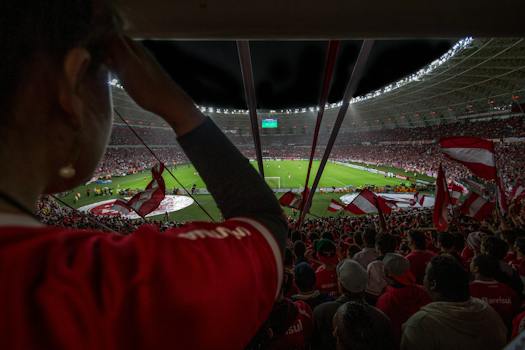-
Table of Contents
Unleash the Champion Within: Strategies for Peak Performance in Athletes
Introduction
Strategies for unlocking peak performance in athletes involve a combination of physical training, mental preparation, and optimal recovery techniques. These strategies aim to enhance an athlete’s overall performance, maximize their potential, and achieve their goals in their respective sports. By implementing effective training programs, focusing on mental resilience, and prioritizing recovery, athletes can optimize their performance and reach new heights in their athletic endeavors.
The Importance of Mental Training in Enhancing Athletes’ Performance
The Importance of Mental Training in Enhancing Athletes’ Performance
When it comes to achieving peak performance in sports, many people focus solely on physical training. While physical training is undoubtedly crucial, the importance of mental training should not be underestimated. In fact, mental training plays a significant role in enhancing athletes’ performance and unlocking their full potential.
One of the key reasons why mental training is essential for athletes is its ability to improve focus and concentration. In high-pressure situations, athletes often find it challenging to maintain their focus and stay in the present moment. This lack of focus can lead to mistakes and poor performance. However, through mental training techniques such as visualization and mindfulness, athletes can learn to quiet their minds and stay fully engaged in the task at hand. By improving their focus, athletes can make better decisions, react more quickly, and perform at their best.
Another crucial aspect of mental training is the development of mental toughness. Sports can be physically and mentally demanding, and athletes often face setbacks and obstacles along their journey. Mental toughness allows athletes to persevere through adversity, bounce back from failures, and maintain a positive mindset. Through techniques like positive self-talk and goal setting, athletes can cultivate mental resilience and develop the ability to overcome challenges. This mental toughness not only enhances performance but also contributes to overall well-being and success in life beyond sports.
Furthermore, mental training can help athletes manage stress and anxiety. Competitive sports can be highly stressful, and athletes often experience anxiety before and during competitions. This anxiety can negatively impact performance by causing muscle tension, decreased coordination, and impaired decision-making. However, through techniques like deep breathing and progressive muscle relaxation, athletes can learn to calm their minds and bodies, reducing stress and anxiety levels. By managing their stress effectively, athletes can perform at their best and enjoy the sport they love without being overwhelmed by pressure.
In addition to improving focus, mental toughness, and stress management, mental training also enhances athletes’ confidence and self-belief. Confidence is a crucial factor in sports performance, as it allows athletes to trust their abilities and perform without hesitation. Through techniques like positive imagery and affirmations, athletes can boost their confidence levels and develop a strong belief in their skills. This increased confidence translates into improved performance, as athletes are more likely to take risks, push their limits, and achieve their goals.
In conclusion, mental training is a vital component of unlocking peak performance in athletes. By improving focus, developing mental toughness, managing stress, and enhancing confidence, athletes can reach their full potential and excel in their chosen sport. It is essential for coaches, trainers, and athletes themselves to recognize the importance of mental training and incorporate it into their training programs. By doing so, athletes can not only improve their performance but also enjoy a more fulfilling and successful sporting journey.
Effective Nutrition and Hydration Strategies for Optimal Athletic Performance

Effective Nutrition and Hydration Strategies for Optimal Athletic Performance
When it comes to unlocking peak performance in athletes, nutrition and hydration play a crucial role. Proper fueling and hydration can make a significant difference in an athlete’s ability to perform at their best. In this article, we will explore some effective strategies for ensuring athletes are properly nourished and hydrated.
First and foremost, it is essential for athletes to understand the importance of fueling their bodies with the right nutrients. Carbohydrates are the primary source of energy for athletes, as they provide the necessary fuel for muscles to perform at their best. Including complex carbohydrates such as whole grains, fruits, and vegetables in their diet can help athletes maintain steady energy levels throughout their training and competitions.
In addition to carbohydrates, athletes should also focus on consuming adequate amounts of protein. Protein is essential for muscle repair and growth, which is crucial for athletes who engage in intense physical activity. Good sources of protein include lean meats, poultry, fish, eggs, and dairy products. Athletes should aim to include protein in every meal and snack to support their muscle recovery and development.
Furthermore, healthy fats should not be overlooked in an athlete’s diet. While fats are often demonized, they are an important source of energy and can aid in the absorption of fat-soluble vitamins. Athletes should opt for healthy fats found in foods like avocados, nuts, seeds, and olive oil. Including these fats in their diet can help athletes maintain optimal energy levels and support overall health.
In addition to proper nutrition, hydration is another critical aspect of athletic performance. Dehydration can have a detrimental impact on an athlete’s performance, leading to decreased endurance, muscle cramps, and impaired cognitive function. Athletes should aim to drink enough fluids throughout the day to maintain proper hydration levels.
Water is the best choice for hydration, but for intense or prolonged exercise, sports drinks can be beneficial. These drinks contain electrolytes, such as sodium and potassium, which help replenish the body’s electrolyte stores lost through sweat. Athletes should also be mindful of their urine color as a general indicator of hydration status. Clear or pale yellow urine is a sign of adequate hydration, while dark yellow urine indicates dehydration.
Timing is also crucial when it comes to nutrition and hydration for athletes. It is essential to fuel the body before, during, and after exercise to optimize performance and aid in recovery. Consuming a balanced meal or snack containing carbohydrates and protein about two to three hours before exercise can provide the necessary energy and nutrients. During exercise, athletes should aim to drink fluids regularly to prevent dehydration. After exercise, consuming a combination of carbohydrates and protein within 30 minutes can help replenish glycogen stores and promote muscle recovery.
In conclusion, effective nutrition and hydration strategies are vital for unlocking peak performance in athletes. Proper fueling with carbohydrates, protein, and healthy fats can provide the necessary energy and nutrients for optimal athletic performance. Adequate hydration, through water and sports drinks, is crucial to prevent dehydration and maintain endurance. Timing is also essential, with pre, during, and post-exercise nutrition playing a significant role in performance and recovery. By implementing these strategies, athletes can maximize their potential and achieve their goals.
Implementing Periodization Training to Maximize Athletes’ Peak Performance
Implementing Periodization Training to Maximize Athletes’ Peak Performance
In the world of sports, athletes are constantly striving to reach their peak performance. Whether it’s running faster, jumping higher, or hitting harder, athletes are always looking for ways to improve their skills and abilities. One strategy that has been proven to be effective in unlocking peak performance is periodization training.
Periodization training is a systematic approach to training that involves dividing the training program into specific periods or phases. Each phase has a specific goal and focuses on different aspects of the athlete’s performance. By breaking down the training program into these phases, athletes are able to target specific areas of improvement and maximize their performance.
The first phase of periodization training is the preparation phase. This phase focuses on building a solid foundation of strength and endurance. Athletes will engage in activities such as weightlifting, cardiovascular exercises, and flexibility training. The goal of this phase is to improve overall fitness and prepare the body for the more intense phases to come.
Once the preparation phase is complete, athletes move on to the second phase, which is the hypertrophy phase. During this phase, athletes focus on building muscle mass and increasing strength. This is achieved through high-intensity weightlifting exercises and resistance training. The goal of this phase is to increase the athlete’s power and explosiveness, which are essential for peak performance.
After the hypertrophy phase, athletes enter the third phase, which is the strength phase. In this phase, athletes continue to build strength but shift their focus to lifting heavier weights with fewer repetitions. This phase is crucial for developing maximum strength and power, which are essential for sports such as weightlifting, football, and wrestling.
The fourth phase of periodization training is the power phase. During this phase, athletes focus on explosive movements and plyometric exercises. These exercises are designed to improve the athlete’s ability to generate power and speed. Athletes may engage in activities such as box jumps, medicine ball throws, and sprinting drills. The goal of this phase is to enhance the athlete’s speed, agility, and overall power.
The final phase of periodization training is the peaking phase. This phase is all about fine-tuning the athlete’s skills and preparing them for competition. Athletes will engage in sport-specific drills and exercises to simulate the demands of their sport. The goal of this phase is to ensure that the athlete is at their peak performance level when it matters most.
Implementing periodization training requires careful planning and monitoring. Coaches and trainers must design a training program that takes into account the athlete’s goals, abilities, and competition schedule. They must also monitor the athlete’s progress and make adjustments as needed to ensure that they are progressing towards their peak performance.
In conclusion, periodization training is a highly effective strategy for unlocking peak performance in athletes. By breaking down the training program into specific phases, athletes are able to target specific areas of improvement and maximize their performance. Whether it’s building strength, increasing power, or fine-tuning skills, periodization training provides a systematic approach to help athletes reach their full potential. So, if you’re an athlete looking to take your performance to the next level, consider implementing periodization training into your training program.
Q&A
1. What are some strategies for unlocking peak performance in athletes?
– Setting clear and achievable goals
– Implementing a well-rounded training program
– Focusing on mental preparation and visualization techniques
– Ensuring proper nutrition and hydration
– Prioritizing rest and recovery
– Utilizing sports psychology techniques
– Providing effective coaching and feedback
2. How can goal setting help athletes achieve peak performance?
– Goals provide athletes with a clear direction and purpose
– They help athletes stay motivated and focused
– Goals can be used to track progress and measure success
– Setting specific and challenging goals can push athletes to perform at their best
3. Why is mental preparation important for unlocking peak performance in athletes?
– Mental preparation helps athletes develop a positive mindset and confidence
– It allows athletes to effectively manage stress and pressure
– Mental preparation techniques, such as visualization, can enhance performance and skill execution
– It helps athletes stay focused and maintain concentration during competition.
Conclusion
In conclusion, implementing effective strategies for unlocking peak performance in athletes is crucial for their success. These strategies may include setting clear goals, developing a comprehensive training plan, focusing on mental and physical preparation, utilizing sports psychology techniques, providing proper nutrition and rest, and fostering a supportive and positive team environment. By implementing these strategies, athletes can enhance their performance, achieve their full potential, and excel in their respective sports.

